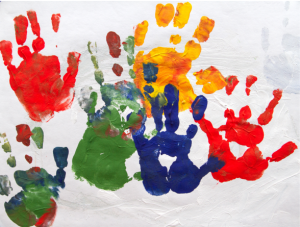
Findings from a landmark study into the maltreatment of children could help transform how we understand child maltreatment and the services that are needed to prevent abuse from happening in the first place.
The Office of the Guardian, of course, sees the cumulative impact of maltreatment, the ongoing impacts of trauma and neglect across many aspects of children’s lives – including safety and stability in placements, (dis)engagement with education, their physical and mental health, involvement with the youth justice system and impacts on relationships.
“As Guardian and Training Centre Visitor I see the ‘downstream’ impact of maltreatment on children and young people as they come into the child protection and youth justice systems,” Guardian Shona Reid said. “I see the trauma played out in a child or young person’s life where effective early intervention has not occurred, not attempted or was unsuccessful. The consequences of these experiences are often severe, lifelong and impact multiple generations,” she said.
The just released study, The Australian Child Maltreatment Study: A landmark study of the national prevalence of child abuse and neglect, and associated health and behavioural outcomes, by Professor Ben Mathews of the Queensland University of Technology and a team of researchers, is the first comprehensive nationwide study looking into the prevalence, characteristics and outcomes associated with child maltreatment. Evidence gained from the study should inform better and targeted approaches across the array of sectors serving children, families, and communities, to help prevent child abuse and neglect and reduce associated conditions and health risk behaviours
Of the 8,503 survey participants, nearly two-thirds had been abused, neglected, or exposed to domestic violence as children, with two in five experiencing two or more types of maltreatment. The leading type of child maltreatment reported was exposure to domestic violence (39.6%), followed by physical abuse (32.0%), emotional abuse (30.9%), sexual abuse (28.5%) and neglect (8.9%). Except for physical abuse, girls and young women were more like to experience maltreatment as a child than boys or young men.
The study found those who experienced maltreatment had higher rates of negative long-term health outcomes, with 48.0% reported having a mental health disorder, including depression, anxiety, substance abuse and post-traumatic stress disorder. Increased health risk behaviours were also prevalent amongst the participants, with 30.5% of people aged 16-24 surveyed said they had self-harmed in their lifetime, with girls and young women twice as likely to do so.
In light of the findings from the study, it is hoped that the South Australian Government will grasp the opportunity to address the root causes of child maltreatment, which directly leads to so many children being removed from their families and communities. As for children and young people who have experienced maltreatment and get caught up in the child protection and young justice systems, that the government commits additional resources and efforts to better prioritise supports to help children and young people recover, heal and reduce the severity of long-term impacts for their lives.
“Too often, we see children and young people who have experienced maltreatment as ‘the problem’ or ‘challenging’. We need to always keep at the forefront of our minds that these are vulnerable children and young people who carry the scars of their experiences. Too often we have failed them and must get better at addressing their past traumas and providing the level of care and support they so desperately need,” Shona said.
“We need to do better as a collective, we need to get in earlier. We need to focus our service system to what children and young people need, and for us to ensure any legislative and policy changes match the reality of what kids face every single day.”
“No child deserves to experience this trauma… we must learn from this study… simply respond accordingly.”
